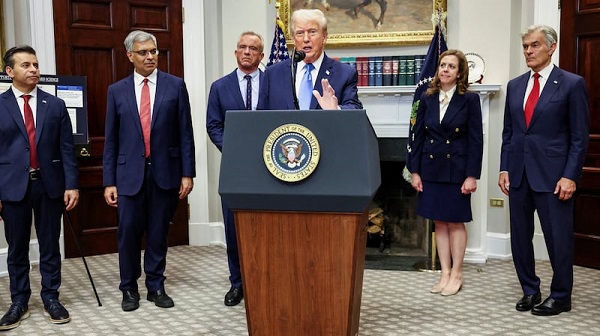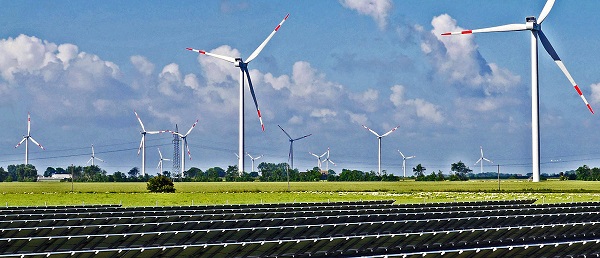Business
Our addiction to dairy supply management is turning Canada into a trade pariah

This article supplied by Troy Media.
 By Sylvain Charlebois
By Sylvain Charlebois
A new bill shielding dairy, poultry and eggs from trade negotiations sends the wrong message to global partners and punishes Canadian consumers
Last week, the House of Commons unanimously approved Bill C-202, a law that would prohibit Canada from making any trade concessions
involving its supply-managed sectors, including dairy, poultry and eggs.
The bill now moves to the Senate for final approval. With unanimous support, the House is reinforcing a decades-old protectionist system just as Canada faces mounting pressure to modernize its economy and re-establish credibility as a global trading partner.
Introduced initially as Bill C-282 by the Bloc Québécois in the last Parliament, Bill C-202 grants blanket immunity to supply-managed sectors, most notably dairy, regardless of the negotiating partner or economic context. With its approval in the House, Parliament has already sent a clear signal: this system is off-limits, no matter the cost.
Canada’s approach to supply management and trade keeps circling back to the same policy mistakes—protecting an outdated system whose relevance is increasingly hard to justify.
Supply management, a system that controls domestic production through quotas, guarantees prices for farmers and restricts imports with high tariffs, especially in dairy, poultry and eggs, was introduced decades ago to stabilize farm incomes and ensure domestic supply. But today, it’s more about shielding entrenched interests than serving consumers or the broader economy.
During the federal election campaign, Prime Minister Mark Carney stated in a Radio-Canada interview that no legislation was necessary to protect the dairy industry. It appears he has since changed his mind, or someone changed it for him.
While the prime minister’s shift signals executive backing, not everyone is convinced. The Senate may still push back, as some senators have raised
concerns about the bill’s long-term economic consequences. But the political momentum is unmistakable: protectionism is once again being presented as national interest.
In Ottawa, few MPs from any party challenge one of the most powerful lobby groups in the country: the Dairy Farmers of Canada. Their influence is
formidable, both federally and provincially. Despite this outsized influence, it’s worth asking: what exactly are we protecting?
Canada has the highest industrial milk prices in the G7. A litre of milk in Canada can cost up to twice as much as it does in the U.S.—an added burden for families already struggling with inflation and rising grocery bills.
These elevated prices don’t drive innovation or reinvestment. Many producers are content to maintain the status quo, insulated from competition. The result? Consumers pay more while the industry resists efficiency and change.
Defenders of supply management often point to food safety. It’s true that bovine growth hormones are banned here. That’s commendable.
But other practices deserve more scrutiny. A 2022 study published in Trends in Food Science and Technology found that palm oil derivatives are permitted in feed for Canadian dairy cows. This may help explain the firmer, less spreadable butter observed at room temperature—a phenomenon dubbed “Buttergate,” which was initially dismissed by dairy farmers despite growing evidence.
More recently, a peer-reviewed study co-authored by researchers at McGill and Dalhousie universities estimated that Canada discards between 600 million and one billion litres of milk annually. The dairy lobby rejected the findings but has yet to present alternative data.
The reality is simple: cows don’t stop producing milk when demand dips, so waste is inevitable.
Rather than engage critics or offer transparency, the dairy sector leans on silence and self-congratulation. Reform is taboo. This unwillingness to confront hard truths at home has international consequences.
Looking ahead, Canada will need to renegotiate trade deals with the United States, Mexico and other partners.
Trade negotiations with countries like the U.S., our largest trading partner, require flexibility and credibility. Shielding entire sectors from negotiation signals that we are unwilling to deal in good faith.
Two choices await: we either pay billions in compensation to dairy farmers every time we offer concessions, a practice that borders on economic racketeering, or we forfeit our standing as a credible trade partner.
What message does this send to the world at a time when Canada urgently needs to diversify its economy?
By clinging to a politically convenient system, our elected officials are rewarding complacency and institutionalizing inefficiency, all under the guise of defending national interests.
The more things change, the more they stay the same.
Dr. Sylvain Charlebois is a Canadian professor and researcher in food distribution and policy. He is senior director of the Agri-Food Analytics Lab at Dalhousie University and co-host of The Food Professor Podcast. He is frequently cited in the media for his insights on food prices, agricultural trends, and the global food supply chain.
Troy Media empowers Canadian community news outlets by providing independent, insightful analysis and commentary. Our mission is to support local media in helping Canadians stay informed and engaged by delivering reliable content that strengthens community connections and deepens understanding across the country.
Business
Bill C-8 would allow minister to secretly cut off phone, Internet service

From the Canadian Constitution Foundation
“I worry that this law could be used to secretly cut off political dissidents from their phone or Internet service on the pretense that they may try to manipulate the telecom system”
The Canadian Constitution Foundation is concerned about the civil liberties implications of the Carney government’s proposed cyber security bill, C-8, which would allow the minister of industry to secretly order telecommunications service providers like Telus, Bell and Rogers to stop providing services to individual Canadians.
The minister would be allowed to make such an order if she has “reasonable grounds to believe that it is necessary to do so to secure the Canadian telecommunications system against any threat, including that of interference, manipulation, disruption or degradation.”
An individual who does not comply, including by failing to keep the order secret, could face fines of up to $25,000 for the first contravention and $50,000 for subsequent contraventions. Businesses could face fines of up to $10 million for the first contravention and up to $15 million for subsequent contraventions.
The orders would remain secret indefinitely, with the minister required only to present an annual report to Parliament on the number of orders made and her opinion on their necessity, reasonableness and utility.
CCF Counsel Josh Dehaas said that the power to cut off the Internet or cellphone service of Canadians is a “very serious power that requires very strong safeguards, which are presently lacking in the bill.”
“While this power may be necessary in some cases to prevent cyber attacks, it also poses serious risks to civil liberties,” Dehaas said. “I worry that this law could be used to secretly cut off political dissidents from their phone or Internet service on the pretense that they may try to manipulate the telecom system,” Dehaas explained. “Such an action would violate our most cherished freedoms including free speech.”
CCF Litigation Director Christine Van Geyn said that the government cannot be trusted with such a power unless proper safeguards are in place.
“You may think that the idea of the government cutting off political dissidents from the necessities of life sounds far-fetched, but that’s exactly what happened during the 2022 Freedom Convoy protests in Ottawa,” she said. “The federal government ordered banks to freeze hundreds of bank accounts without any judicial authorization, cutting protesters off from their money in the middle of a very cold winter.”
“Although the Federal Court agreed with the CCF that freezing bank accounts this way violated the constitutional right to be secure against unreasonable searches and seizures, that kind of damage isn’t easily repaired,” Van Geyn added.
Ottawa has appealed the Federal Court’s finding. The CCF is awaiting a decision from the Federal Court of Appeal.
Dehaas said that Parliament should consider requiring either judicial pre-authorization or an immediate, automatic judicial review of any decision to cut off an individual or business from their Internet or phone.
The CCF is also concerned that Bill C-8 would allow the minister to weaken telecommunications companies’ encryption standards, allowing for unconstitutional access to Canadians’ private information.
Finally, the CCF is concerned that the bill could allow the minister or any person designated by the minister to engage in unconstitutional searches.
Joanna Baron, the CCF’s Executive Director, said that Canadians must be vigilant about their constitutional rights and freedoms because they can be easily taken away, especially in times of crisis.
“I would encourage Canadians to fight for their freedoms, whether it’s by taking the CCF’s free privacy course, signing up for our weekly Freedom Update newsletter or becoming a monthly donor,” Baron said.
“Concerned Canadians are also encouraged to write to their MPs using our form letter, to tell them to amend these bills to ensure Canadians’ rights to privacy and free expression are protected,” Baron added.
Alberta
Taxpayers: Alberta must scrap its industrial carbon tax

-
Carney praises carbon taxes on world stage
-
Alberta must block Carney’s industrial carbon tax
The Canadian Taxpayers Federation is calling on the government of Alberta to completely scrap its provincial industrial carbon tax.
“It’s baffling that Alberta is still clinging to its industrial carbon tax even though Saskatchewan has declared itself to be a carbon tax-free zone,” said Kris Sims, CTF Alberta Director. “Prime Minister Mark Carney is cooking up his new industrial carbon tax in Ottawa and Alberta needs to fight that head on.
“Alberta having its own industrial carbon tax invites Carney to barge through our door with his punishing industrial carbon tax.”
On Sept. 16, the Alberta government announced some changes to Alberta’s industrial carbon tax, but the tax remains in effect.
On Friday night at the Global Progress Action Summitt held in London, England, Carney praised carbon taxes while speaking onstage with British Prime Minister Keir Starmer.
“The direct carbon tax which had become a divisive issue, it was a textbook good policy, but a divisive issue,” Carney said.
During the federal election, Carney promised to remove the more visible consumer carbon tax and change it into a bigger hidden industrial carbon tax. He also announced plans to create “border adjustment mechanisms” on imports from countries that do not have national carbon taxes, also known as carbon tax tariffs.
“Carney’s ‘textbook good policy’ comments about carbon taxes shows his government is still cooking up a new industrial carbon tax and it’s also planning on imposing carbon tax tariffs,” Sims said. “Alberta should stand with Saskatchewan and obliterate all carbon taxes in our province, otherwise we are opening the door for Ottawa to keep kicking us.”
-
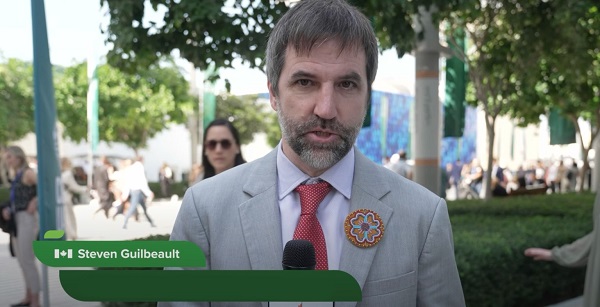
 Censorship Industrial Complex2 days ago
Censorship Industrial Complex2 days agoCanada To Revive Online Censorship Targeting “Harmful” Content, “Hate” Speech, and Deepfakes
-

 Alberta2 days ago
Alberta2 days agoAlberta refuses to take part in Canadian government’s gun buyback program
-
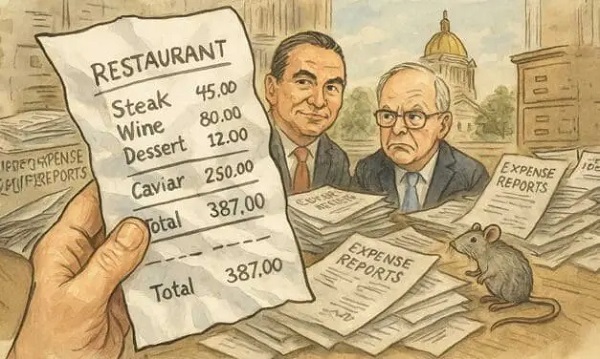
 Business1 day ago
Business1 day agoTaxpayers deserve proof of how politicians spend their money
-
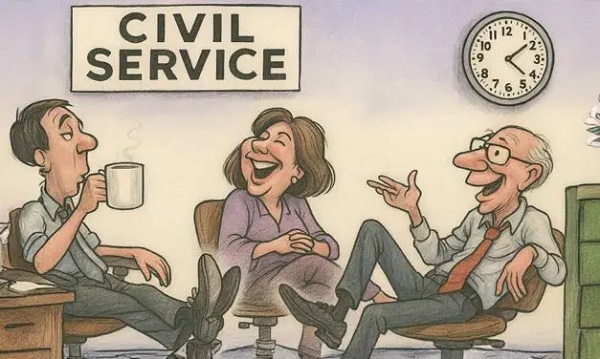
 Business1 day ago
Business1 day agoOttawa’s civil service needs a Chrétien-style reset
-
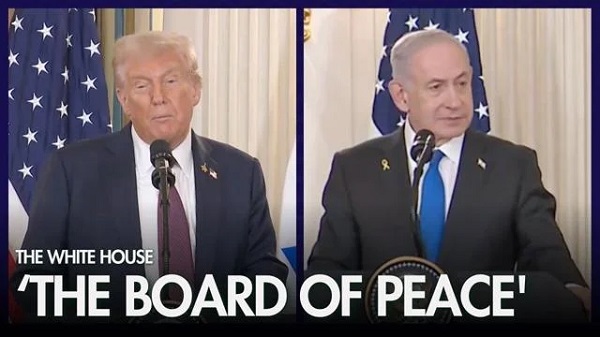
 International2 days ago
International2 days agoTrump, Netanyahu inch closer to peace plan for Gaza
-

 Alberta2 days ago
Alberta2 days agoOrthodox church burns to the ground in another suspected arson in Alberta
-

 Fraser Institute1 day ago
Fraser Institute1 day agoAboriginal rights now more constitutionally powerful than any Charter right
-

 Alberta1 day ago
Alberta1 day ago$150 a week from the Province to help families with students 12 and under if teachers go on strike next week




